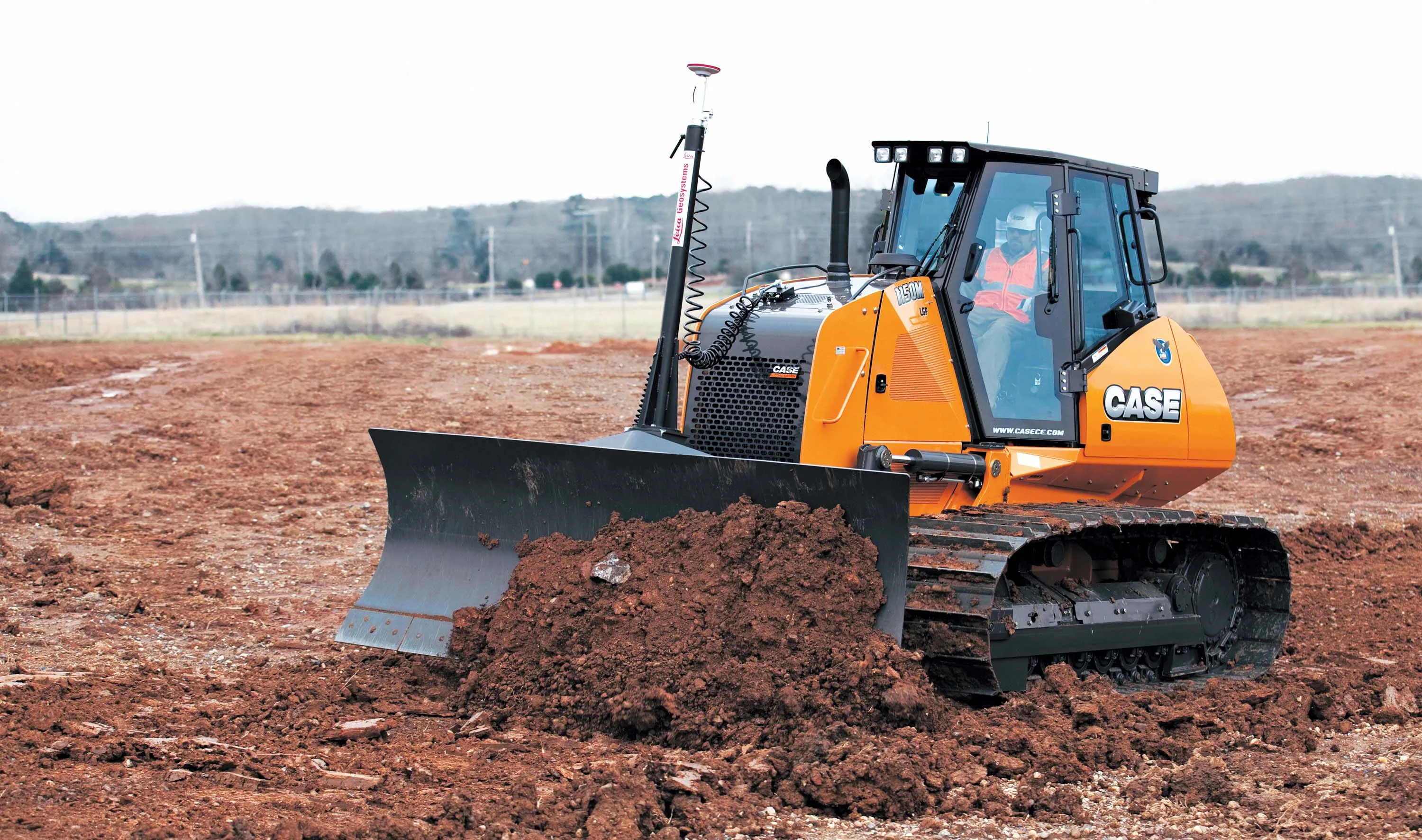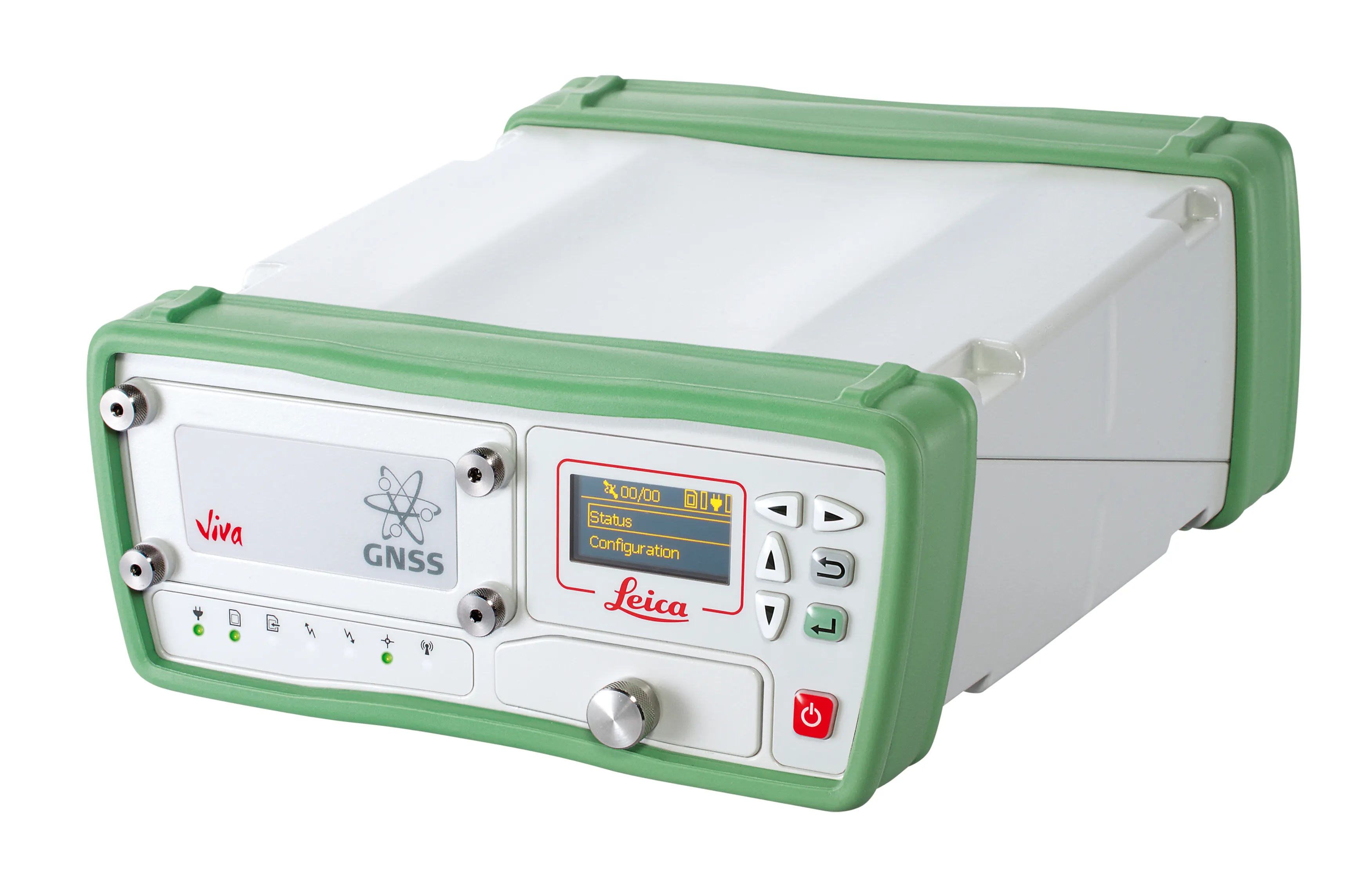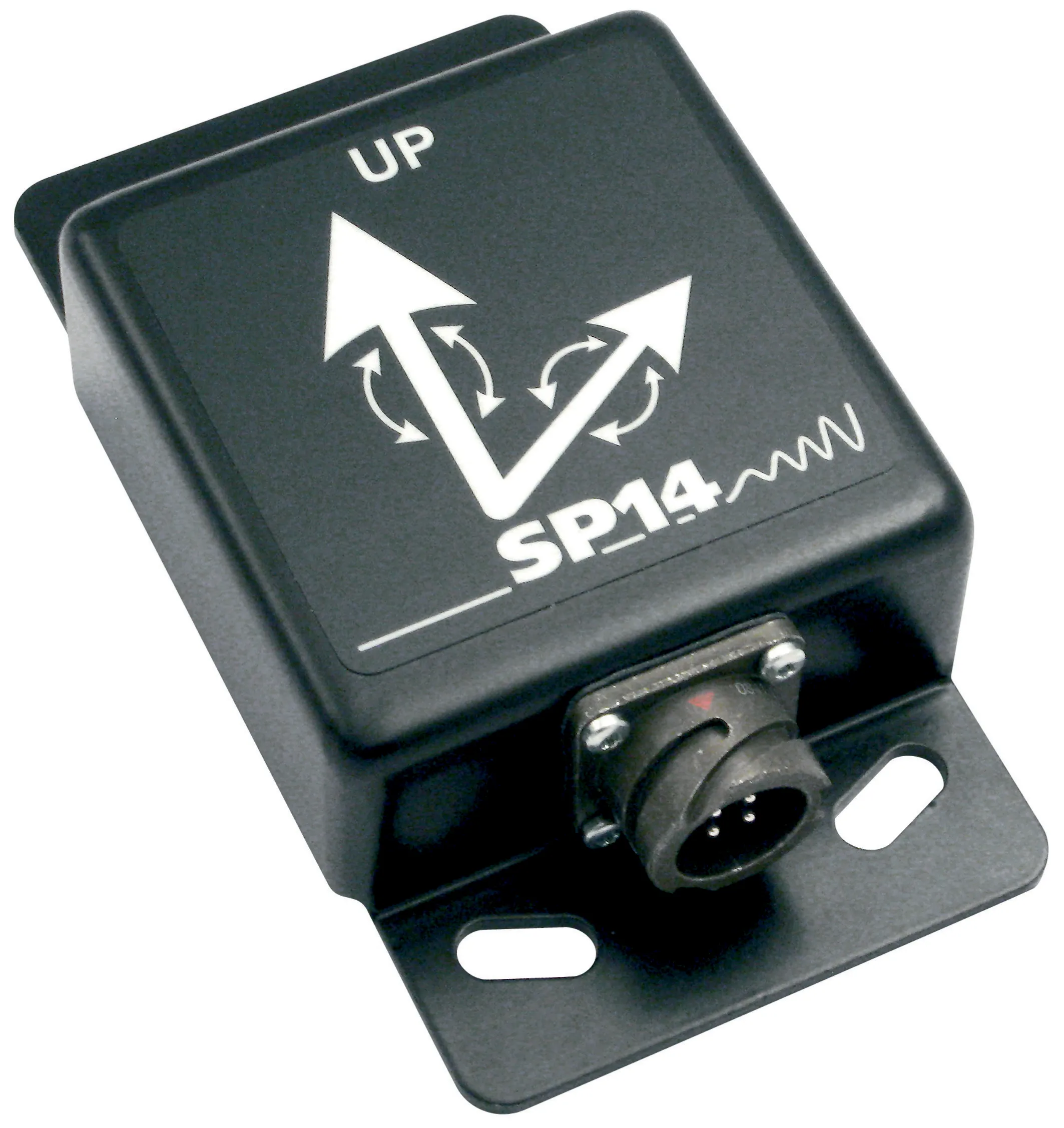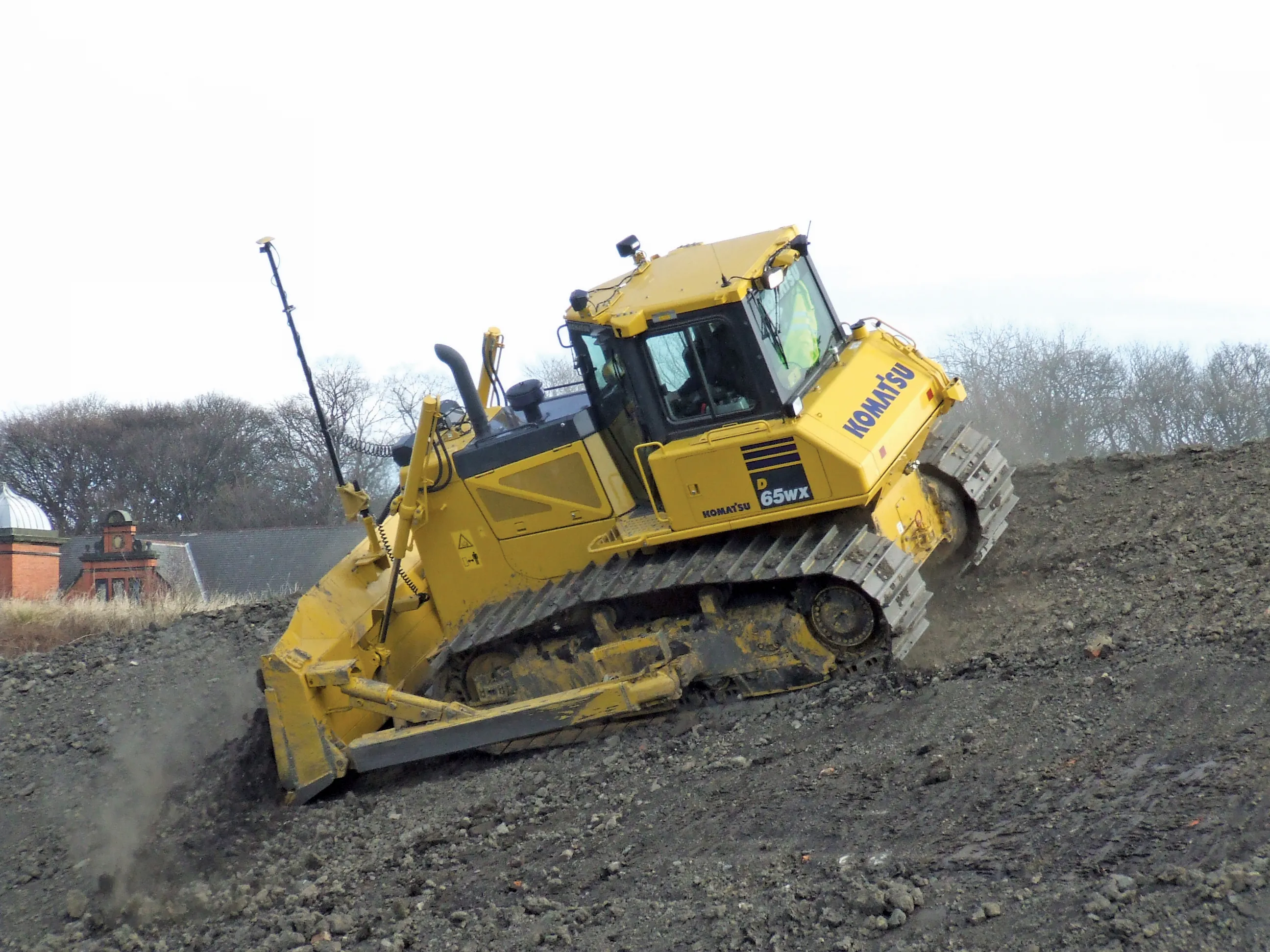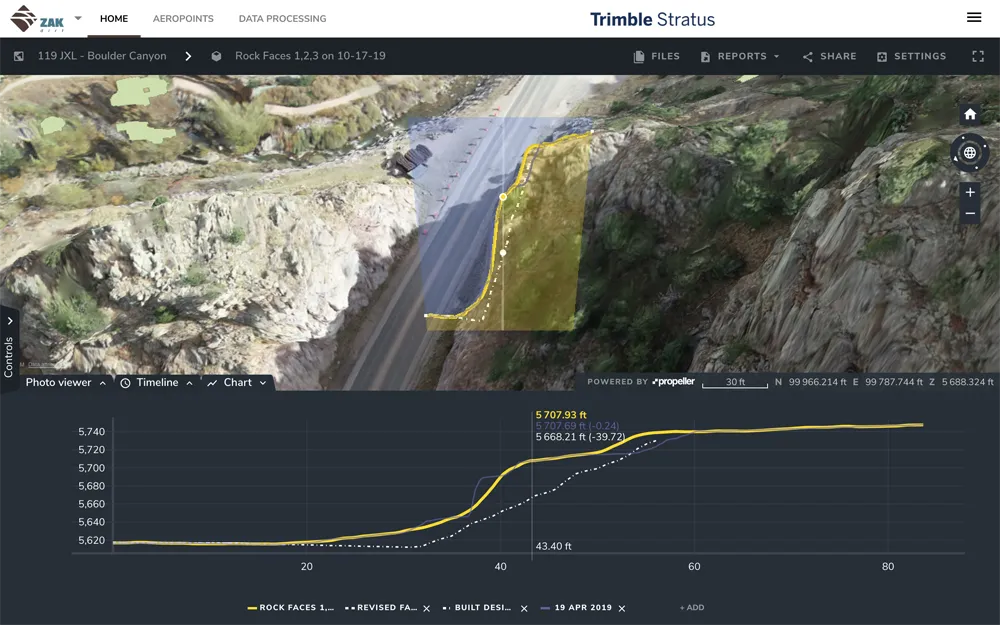
The latest machine control systems for the asphalt paving sector are delivering huge gains in performance. Using these systems can save on costly materials, while ensuring better finish quality and longer lasting pavements.
All three of the major suppliers of machine control systems, Leica Geosystems, Topcon Positioning and Trimble, have introduced sophisticated technologies to boost asphalt paving efficiency.
According to Leica Geosystems, its latest Leica iCON machine control solution for asphalt pavers can boost productivity and reduce the working time needed. The firm says that paving jobs can be handled more efficiently and within the desired specification. The firm says that its new 3D system can help to reduce costs and shorten project time and is highly versatile, as it allows an array of sensor combinations to suit the broadest range of paving tasks.
Users can track, view and synchronise equipment using the Leica ConX system. For long paving operations, an automatic leapfrog system allows continuous paving and helps to increase quality.
The firm says that its equipment can be used with all main asphalt paver brands and a sophisticated feature of the top-of-the-range version is that it includes width and steering control.
Key features of the package are that an asphalt paver will be ready to pave after reference upload, with the inaccuracies of conventional methods being eliminated, while also delivering consistent paving quality. In addition, the system helps to reduce road maintenance costs over time due to the more accurate paved surface without the bumps and dips that suffer premature wear.
Topcon meanwhile is introducing an advanced Thermal Mapper system for optimising asphalt paving quality. The package is designed to monitor temperature segregation, measuring paving performance and preventing future problems. Also, the system offers accurate compliance reporting and real-time kinematic (RTK) positioning accuracy.
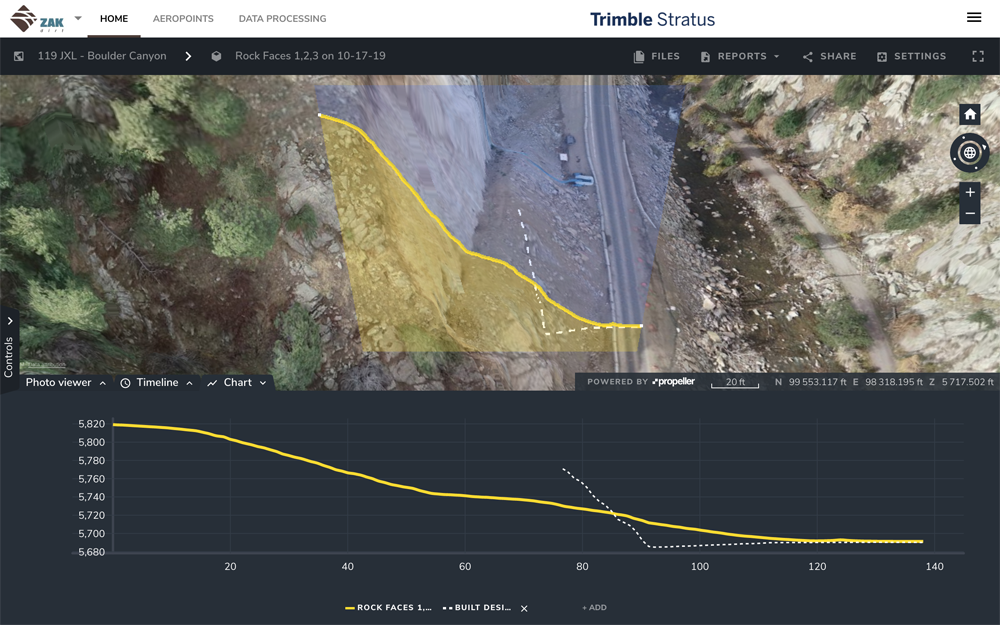 The mapper records temperature readings behind an asphalt paver as the machine works. Operators can see in real time whether the mix falls within a predefined temperature range, and if any segregation is limited within specifications.
The mapper records temperature readings behind an asphalt paver as the machine works. Operators can see in real time whether the mix falls within a predefined temperature range, and if any segregation is limited within specifications.
“If too much segregation occurs, roads will develop major problems. The mapper tells operators if the mix is stable or if moderate or severe temperature variation is occurring. If the readings are unacceptable, operators can adjust for more efficient and accurate project outcomes,” said Murray Lodge, senior VP of construction.
This system also features RTK GPS positioning, allowing more accurate results than with earlier generation technology.
The system generates data reporting files to download for applications such as DOT compliance through an interactive Pavelink module, the Topcon cloud-based logistics application for asphalt paving.
Combined with Topcon’s SmoothRide system for milling and the Pavelink system for paving, this new package can help contractors improve paving, according to the firm.
Pavelink allows contractors to monitor the paving workflow from the batch plant, mixing plant, trucks, to the paver, to the rollers. Bringing in the heat sensor system into that workflow, the firm says it is giving contractors more tools to meet current high specifications.
And Trimble is now offering its sophisticated Roadworks 2D Paving Control Platform for asphalt pavers. The automatic screed control system that can improve the accuracy and productivity in applications of asphalt paving. According to the firm, the Trimble Roadworks package allows paving contractors to minimise asphalt waste, achieve optimal rideability and finish projects on time and budget.
Trimble says that its new paving control platform features intuitive, easy-to-learn software built on the Android operating system. The system gives operators of all skill levels the ability to work faster and more productively than before.
"Trimble Roadworks takes paving control to the next level," said Kevin Garcia, general manager for Trimble Civil Specialty Solutions. "This new platform leverages the intuitive Trimble machine control interface and applies it to asphalt pavers, making it easy to use and learn, and more accessible for many different types of contractors."
Trimble Roadworks can use a multitude of 2D references to pave with a fixed thickness, making it a lower-cost option for roads that have been graded or milled using 3D machine control. It can be used in production paving applications such as highways, state roads, airports and large commercial surfaces.
Using the same interface as the Trimble Earthworks Grade Control Platform and many of the same sensors as the Trimble PCS400 2D Paving Control System, current Trimble technology users will need minimal training to get started with Trimble Roadworks.
The paving control application runs on a Trimble TD510 touchscreen display. Also featuring two external keypads, contractors can change sensor values and input data in the field.
Using the Android operating system, operators can download other applications that provide additional useful tools inside the cab such as weather and communications apps.
Trimble Roadworks can be mounted on a variety of new and existing asphalt paving machines, regardless of manufacturer. The system can be configured with a combination of sonic tracers, slope sensors, averaging beam and contact sensors, with the ability to change sensors based on the application.


